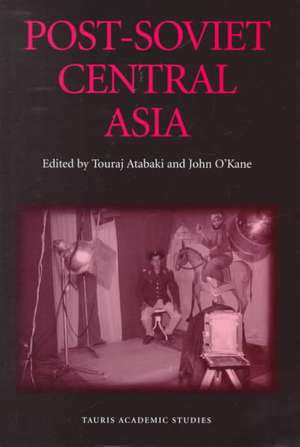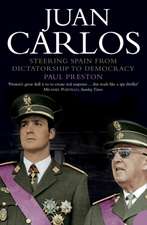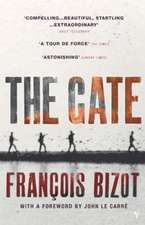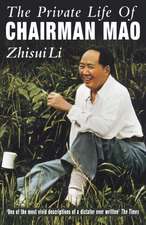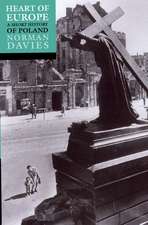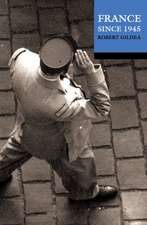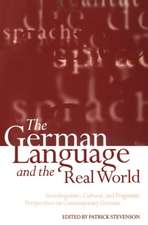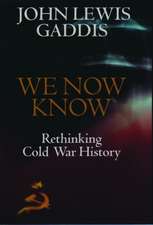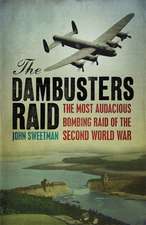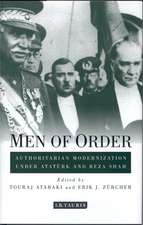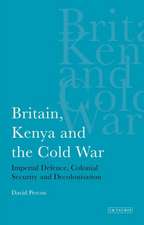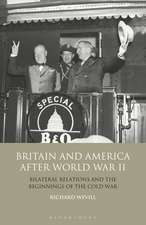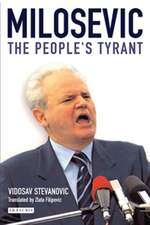Post-Soviet Central Asia
Editat de Touraj Atabaki, John O'Kaneen Limba Engleză Hardback – 27 aug 1998
Preț: 775.22 lei
Preț vechi: 1113.77 lei
-30% Nou
Puncte Express: 1163
Preț estimativ în valută:
148.39€ • 161.23$ • 124.72£
148.39€ • 161.23$ • 124.72£
Carte tipărită la comandă
Livrare economică 21 aprilie-05 mai
Preluare comenzi: 021 569.72.76
Specificații
ISBN-13: 9781860643279
ISBN-10: 1860643272
Pagini: 400
Dimensiuni: 156 x 234 x 38 mm
Greutate: 0.6 kg
Editura: Bloomsbury Publishing
Colecția I.B.Tauris
Locul publicării:London, United Kingdom
ISBN-10: 1860643272
Pagini: 400
Dimensiuni: 156 x 234 x 38 mm
Greutate: 0.6 kg
Editura: Bloomsbury Publishing
Colecția I.B.Tauris
Locul publicării:London, United Kingdom
Notă biografică
Touraj Atabaki is Associate Professor of Iranian and Central Asian Studies at the University of Utrecht. John O'Kane is a writer and translator.
Cuprins
Social and political reorganization in Central Asia - transition from pre-colonial to post-colonial society, Shirin Akiner; the impediments to the development of civil societies in Central Asia, Touraj Atabaki; Russia and former Soviet Central Asia - the attitude towards regional integrity, Vyacheslav Ya Belokrenitsky; foreign policy perspectives of the Central Asian states, Tatian Shaumian; Iran and Central Asia, Tchangiz Pahlevan; Turkish policy in Central Asia, Gareth M. Winrow; towards better mutual comprehension among Turkic-speakers, Edward Tryjarski; the politics of oil and the quest for stability - the Caspian Sea, Tadeusz Swietochowski; literature and the nation in contemporary Uzbekistan, Roberta M. Micallef; the assertion of Uzbek national identity - nativization or state-building process? Victoria Koroteyeva, Ekaterina Makarova; language and culture in transition in Uzbekistan, Cay Dollerup; Turmenistan's place in Central Asia and the world, Rainer Freitag-Wirminghaus; the Hazara of Afghanistan - the thorny path towards political unity, 1978-1002, Kristian Berg Harpviken; ethnic identity versus nationalism - the Uzbeks of northeastern Afghanistan and the Afghan state, Gabriele Rasuly-Paleczek; Nawruz in Tajikistan - ritual or politics? Ali Attar; the early 20th century Kazakh intelligentsia - in search of national identity, Gulnar Kendirbaeva; ethnic religious resurgence in Xinjiang, Kulbhushan Warikoo; a Central Asian-Chinese ethnic melting pot - the case of the Gansu corridor, Sabira Stalberg; nations transgressing nation-state - constructing Dungan, Uygur and Kazakh identities across China, Central Asia and Turkey, Dru C. Gladney; past and present of a Manchu tribe - the Sibe, Liliya Gorelova; the Tuvans in China - ethnic identity and language, Mariana Mongush; Central asia in the minds of the Mughals, Richard Foltz; Russian slaves in 17th century Bukhara, Audrey Burton; the royal clan of the Turks and the problem of its designation, Sergey, G. Kljyashtorny; burial sites in Hexi, Susanne Juhl.
